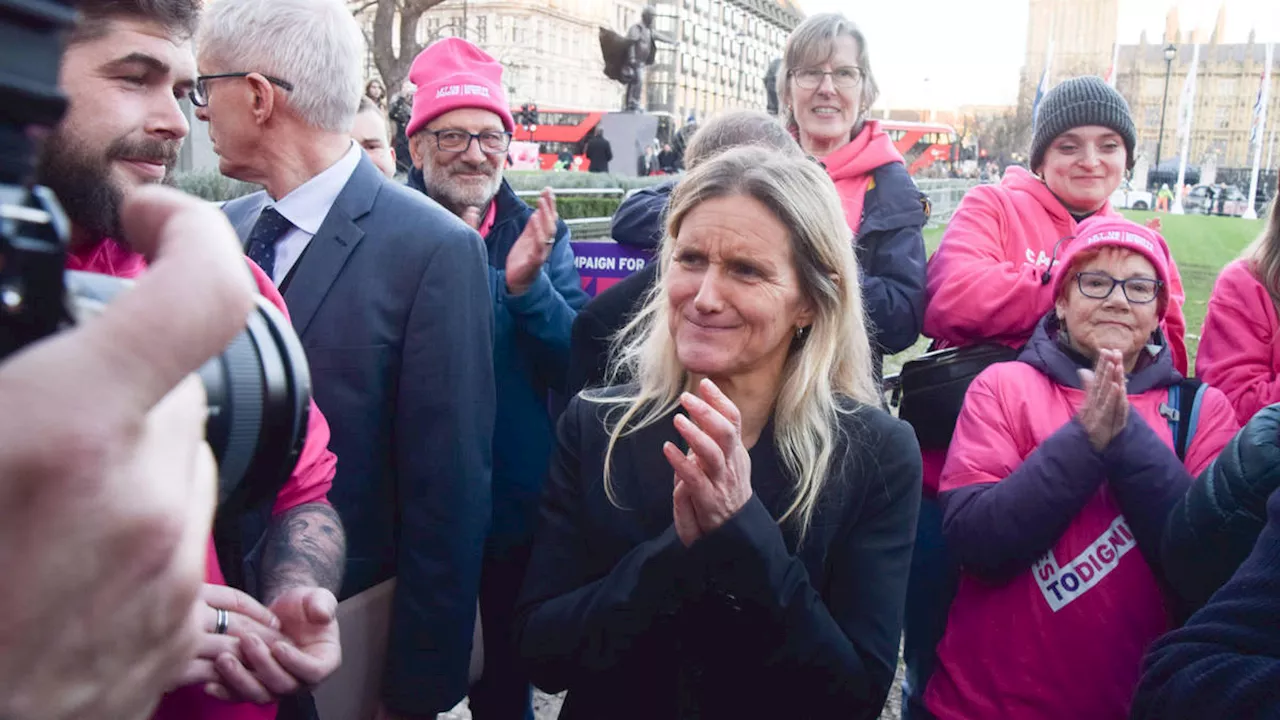The Terminally Ill Adults (End of Life) Bill, aiming to legalize assisted dying for terminally ill adults in England and Wales, may see changes to its original plan involving High Court judge approval. Concerns about the potential burden on the legal system have prompted Labour MP Kim Leadbeater to propose a 'judge plus' system, featuring a Voluntary Assisted Dying Commission led by a judge. This commission would involve psychiatrists, social workers, and independent doctors to ensure robust safeguards and voluntary decision-making.
Assisted dying cases could potentially proceed without the need for a judge's approval, following concerns that the initial plan might overwhelm the legal system. Kim Leadbeater, the Labour MP behind the Terminally Ill Adults (End of Life) Bill, anticipates introducing amendments for a so-called 'judge plus' system, prompted by concerns raised during expert evidence sessions last month.
A group of 23 MPs is set to meticulously analyze the proposed legislation from Tuesday, with the review process anticipated to span several weeks. Currently, the Bill could enable terminally ill adults in England and Wales with less than six months to live to legally end their lives, contingent upon approval from two doctors and a High Court judge. Ms. Leadbeater has previously argued that the High Court approval requirement makes her proposed legislation the strictest in the world. However, she has now proposed a judge-led Voluntary Assisted Dying Commission that would empower a greater role for experts, including psychiatrists and social workers, in overseeing applications. This commission would be headed by a High Court judge or a senior former judge and would receive all applications and reports from two independent doctors, which would then be referred to a three-member panel chaired by a prominent legal figure. Ms. Leadbeater emphasized that this panel would be 'wholly independent' and would be obligated to ensure the individual's decision to end their life was 'voluntary and not the result of pressure or coercion, and that the person had the capacity to make that decision.'Concerns regarding individuals feeling coerced into an assisted death have been raised before, during, and after the debate surrounding a new law. During expert evidence presented to the committee in January, the learning disability charity Mencap cautioned about the 'extremely risky and dangerous moment' an initial conversation about the option of assisted dying could be. Dan Scorer, head of policy and public affairs at the charity, expressed concerns that it could be 'highly suggestive and push people in a course that they don't, they may not want to go down.' Mencap believes initial conversations would have to be 'incredibly well supported and structured' with an advocate present. Ms. Leadbeater has already proposed that doctors would be required to outline a range of alternative options available to a patient if they discuss assisted dying. On these latest proposed changes, she stated: 'Many of those who gave evidence to the committee, either in person or in writing, recommended an enhanced role for professionals such as psychiatrists and social workers.' 'I agree that their expertise in assessing that a person is able to make a voluntary decision free from coercion or pressure, in addition to the necessary legal checks, will make the system even more robust.' Ms. Leadbeater also acknowledged England's chief medical officer, Professor Sir Chris Whitty's, evidence regarding maintaining safeguards as simple as possible. He informed MPs that the objective is not to have someone with a life expectancy of six months 'stuck in a bureaucratic thicket.' He added: 'We do need to keep this simple. And my view is the best safeguards are simple safeguards. So over-complicating actually usually makes a safeguard less certain, to be honest.' Ms. Leadbeater stated: 'I'm confident we can have a law which is workable in practice and enables people to decide for themselves what they want as their life draws to a close whilst also providing robust safeguards. We have a duty to give the small minority of terminally ill adults who may choose an assisted death the autonomy, dignity and choice they want.'Ms. Leadbeater explained that two independent doctors would be required to submit reports to the panel on each individual applying to the commission for permission to die. The panel would then determine whether further inquiries were necessary, including speaking with the dying person, the doctors, or any other relevant parties. Ms. Leadbeater stated that the commission would annually report on the number and nature of all applications received, and whether they were approved or rejected. This development comes as the Law Society warned that the potential impact on court resources from a High Court judge's involvement 'must be addressed.' Law Society president Richard Atkinson said: 'We are focused on supporting an informed and unbiased discussion on the Bill.' 'There must be strong independent monitoring and review mechanisms in place with robust, accessible and independent safeguards to ensure people are using the scheme of their own accord.' Parliament should closely examine how a person's capacity to decide to end their own life is defined and assessed.' The Terminally Ill Adults (End of Life) Bill requires further consultation to ensure direct and workable safeguards are in place, if it becomes law
ASSISTED DYING LEGALIZATION TERMINALLY ILL ENGLAND WALES HIGH COURT JUDGE COMMISSION SAFEGUARDS VOLUNTARY DECISIONS LEGISLATION
United Kingdom Latest News, United Kingdom Headlines
Similar News:You can also read news stories similar to this one that we have collected from other news sources.
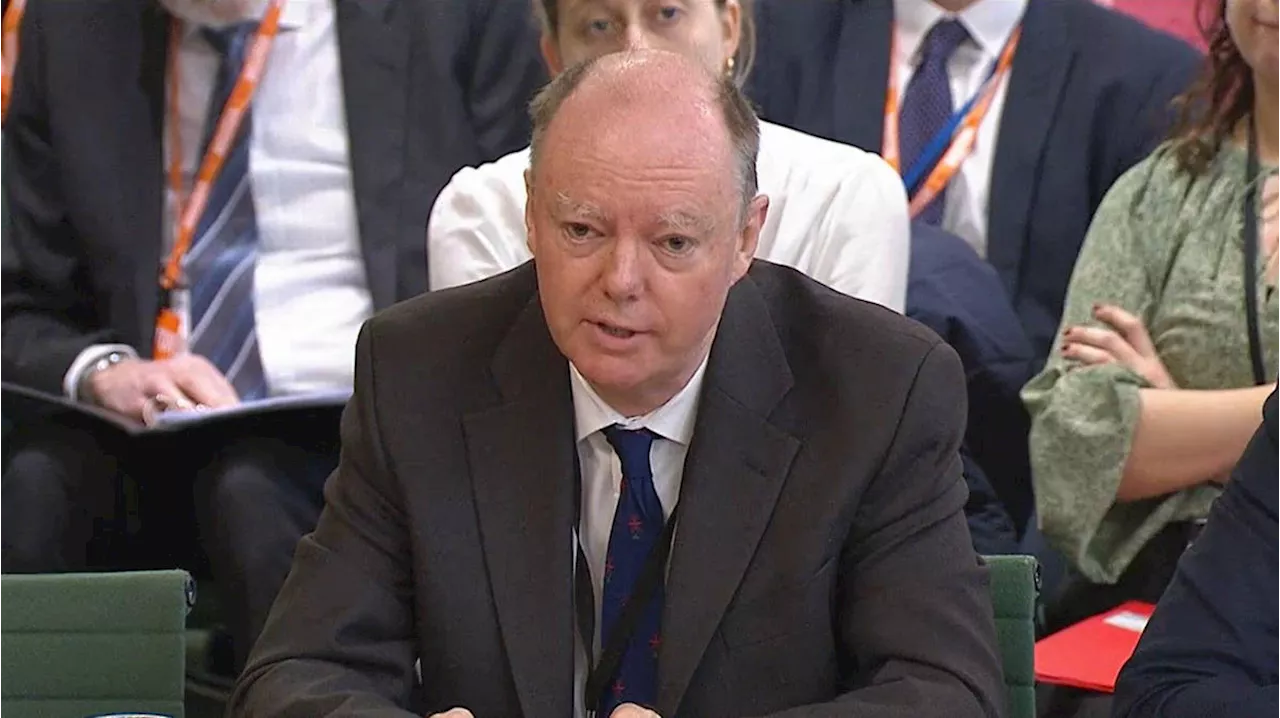 Assisted Dying Bill: Timeline and SafeguardsProfessor Sir Chris Whitty, England's chief medical officer, believes assisted dying legislation could be implemented within two years. He emphasizes that the process should not be rushed and advocates for simplicity in safeguards. The Bill, which could allow terminally ill adults to legally end their lives, is currently under scrutiny by a parliamentary committee.
Assisted Dying Bill: Timeline and SafeguardsProfessor Sir Chris Whitty, England's chief medical officer, believes assisted dying legislation could be implemented within two years. He emphasizes that the process should not be rushed and advocates for simplicity in safeguards. The Bill, which could allow terminally ill adults to legally end their lives, is currently under scrutiny by a parliamentary committee.
Read more »
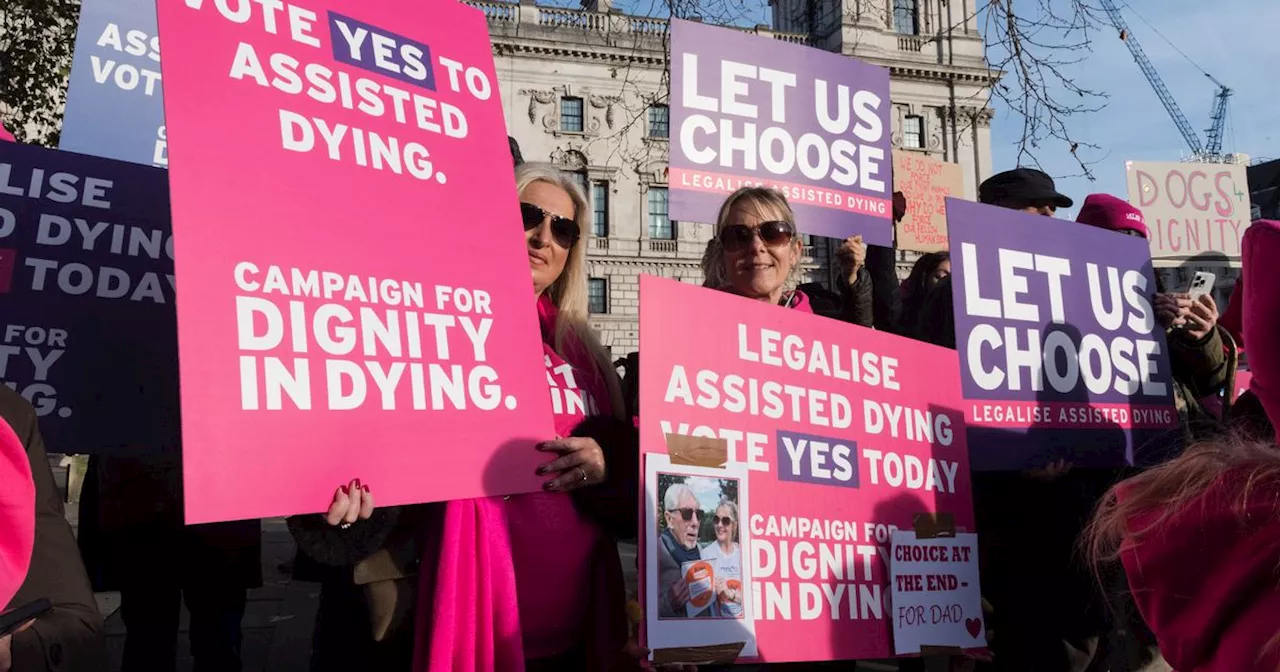 Assisted Dying Bill in Scotland Faces Opposition from Disability GroupA proposal to legalize assisted dying in Scotland has sparked concerns among a disability rights advocacy group, which warns of potential unintended consequences for vulnerable individuals.
Assisted Dying Bill in Scotland Faces Opposition from Disability GroupA proposal to legalize assisted dying in Scotland has sparked concerns among a disability rights advocacy group, which warns of potential unintended consequences for vulnerable individuals.
Read more »
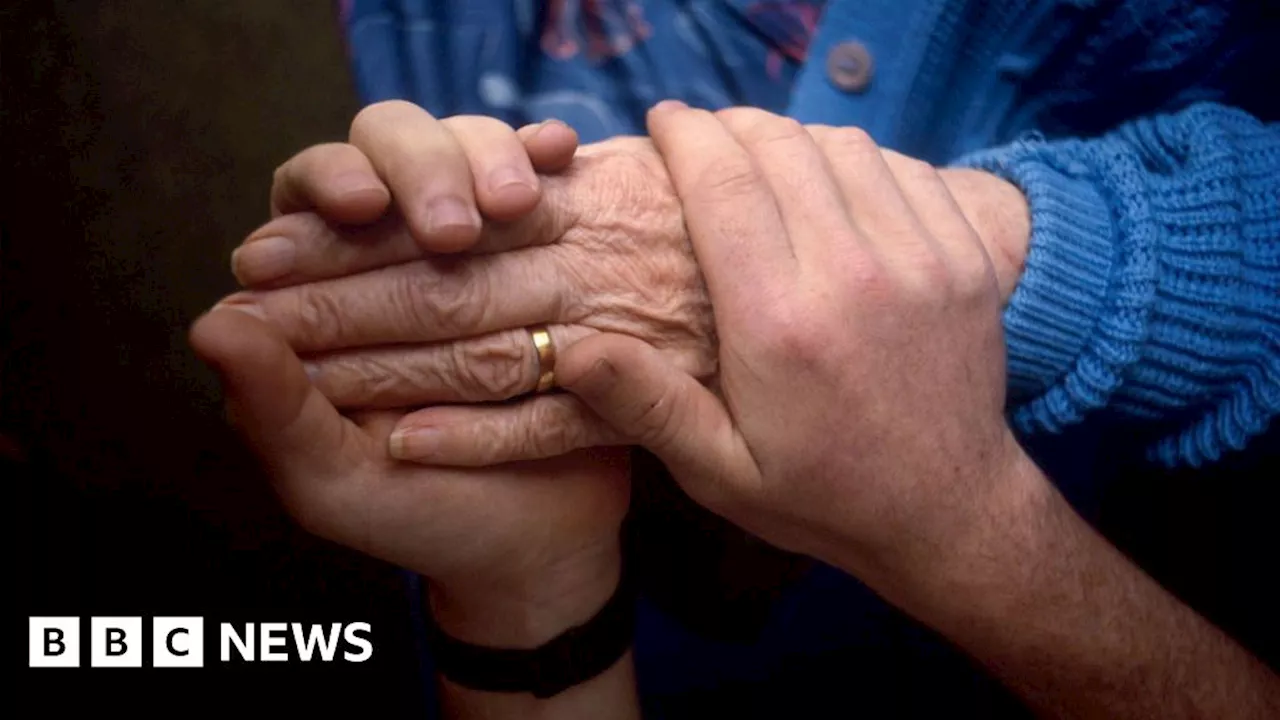 'Having a terminal illness has changed my mind on assisted dying'Patients and palliative care experts have debated what the assisted dying bill could mean for them.
'Having a terminal illness has changed my mind on assisted dying'Patients and palliative care experts have debated what the assisted dying bill could mean for them.
Read more »
 Doctors Should Have Right to Opt Out of Assisted Dying Recommendations, MPs ToldThe British Medical Association (BMA) urges for doctor autonomy in assisted dying recommendations, highlighting the importance of respecting individual physician beliefs. Additionally, the Royal College of Nursing (RCN) stresses the critical role of nurses in end-of-life care and the need for their training in addressing potential patient vulnerability.
Doctors Should Have Right to Opt Out of Assisted Dying Recommendations, MPs ToldThe British Medical Association (BMA) urges for doctor autonomy in assisted dying recommendations, highlighting the importance of respecting individual physician beliefs. Additionally, the Royal College of Nursing (RCN) stresses the critical role of nurses in end-of-life care and the need for their training in addressing potential patient vulnerability.
Read more »
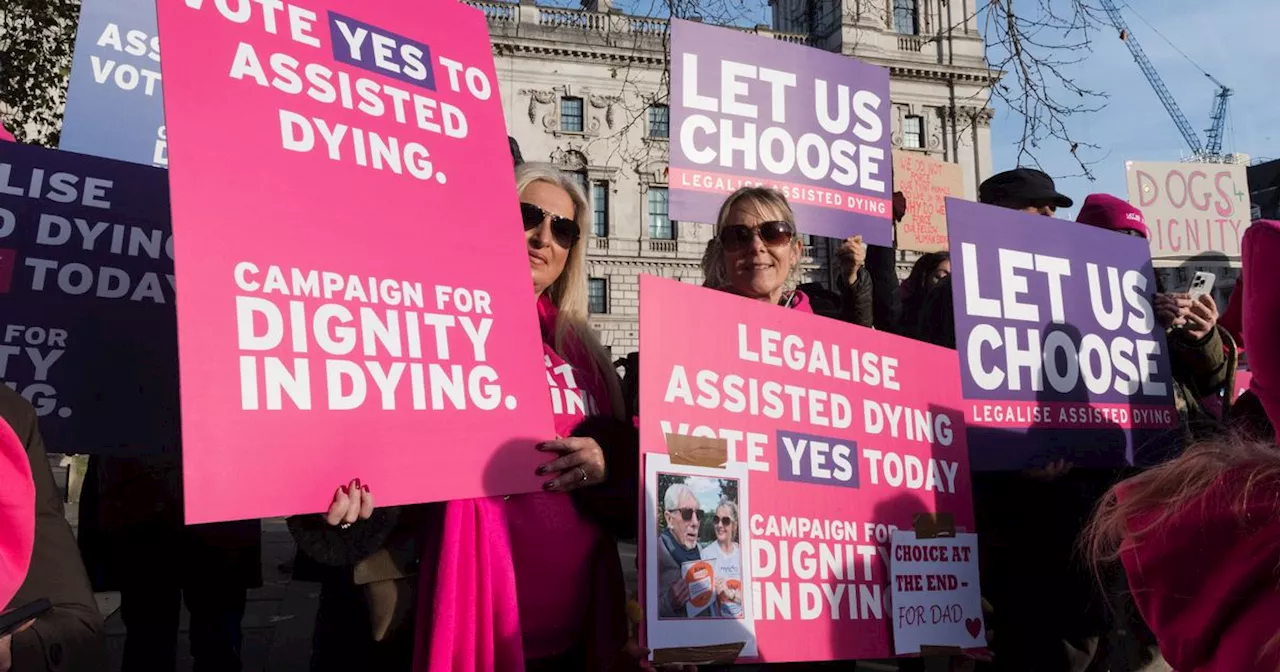 Disability Group Warns of 'Harmful Consequences' for Disabled People in Assisted Dying ProposalA campaign group for disabled members of the Labour Party has expressed concerns that a proposed law to legalise assisted dying in Scotland could have 'unintended and harmful consequences' for people with disabilities. Disability Labour said it could not support the legislation in its current form despite a majority of its members expressing support for it.
Disability Group Warns of 'Harmful Consequences' for Disabled People in Assisted Dying ProposalA campaign group for disabled members of the Labour Party has expressed concerns that a proposed law to legalise assisted dying in Scotland could have 'unintended and harmful consequences' for people with disabilities. Disability Labour said it could not support the legislation in its current form despite a majority of its members expressing support for it.
Read more »
 Helldivers 2 armour skins system leaked with upcoming “adaptive texture” system for extra customisationNew Helldivers 2 armour skins leaks show a new element of customisation on its way to Arrowhead's popular multuplayer game.
Helldivers 2 armour skins system leaked with upcoming “adaptive texture” system for extra customisationNew Helldivers 2 armour skins leaks show a new element of customisation on its way to Arrowhead's popular multuplayer game.
Read more »
